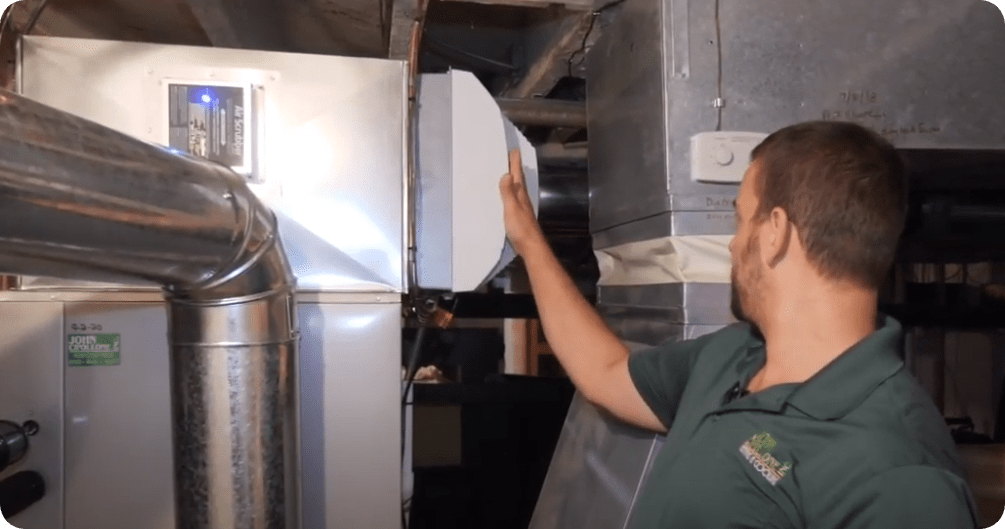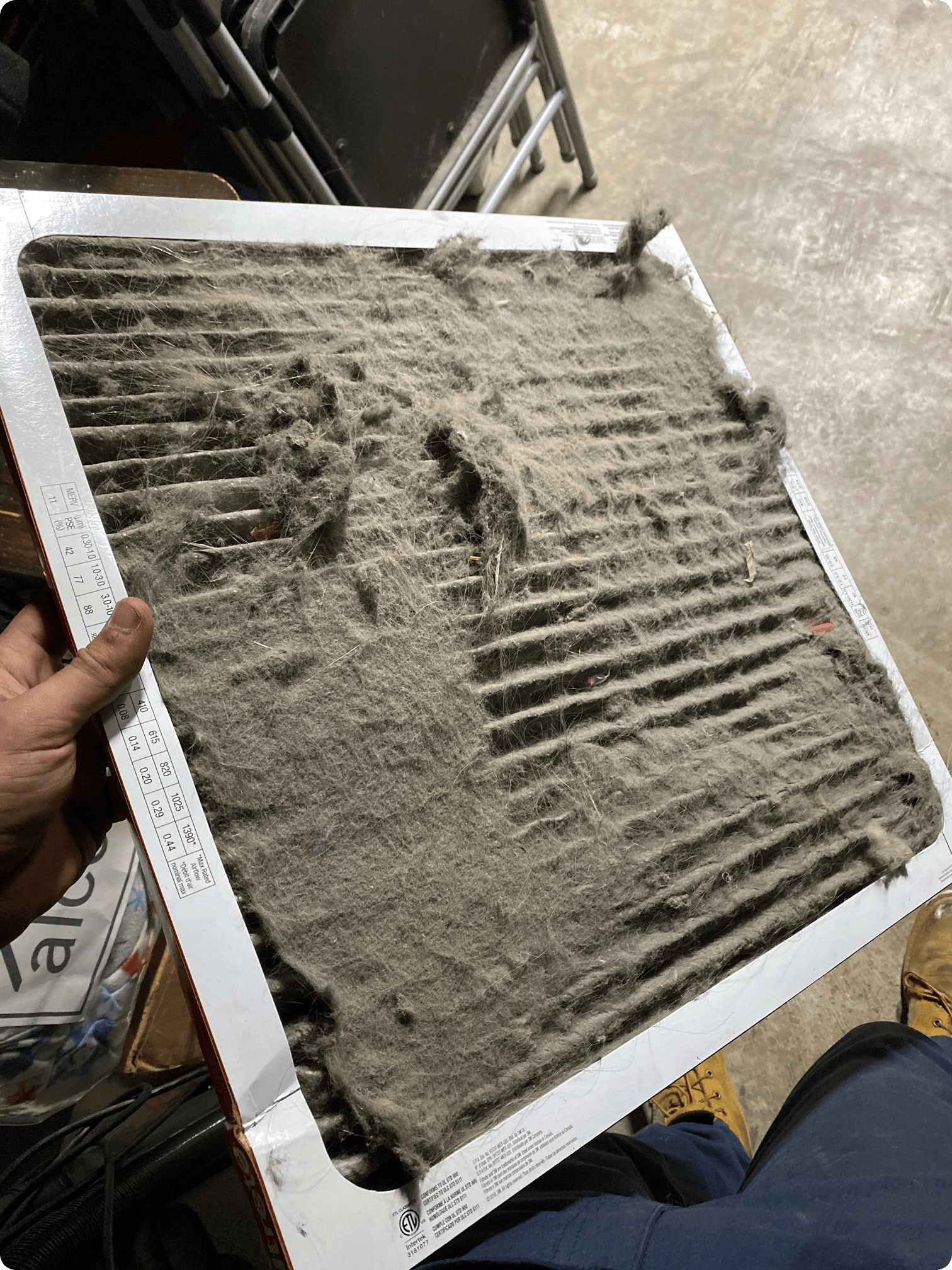How To Improve The Indoor Air Quality Of Your Home
 Breathing in clean, healthy air has become so much more important in recent years. Well, it’s always been important, but in 2024 , it’s something that people think about and consider more often. Indoor air quality directly impacts our health, comfort, and even can impact the belongings and fixtures in your home.
Breathing in clean, healthy air has become so much more important in recent years. Well, it’s always been important, but in 2024 , it’s something that people think about and consider more often. Indoor air quality directly impacts our health, comfort, and even can impact the belongings and fixtures in your home.
I’ve been working with HVAC systems for years, and taking care of homes and businesses in Havertown and the surrounding areas. Indoor air quality has become a focus of ours, and something that we think is paramount when it comes to home comfort. Even if the air in your home is the right temperature, if it’s unhealthy, it makes your home a less comfortable place to be.
This article dives into why indoor air quality is crucial, outlines practical tips to improve it, and highlights the significance of indoor air quality improvement, particularly focusing on Havertown, PA and the other areas around John Cipollone Inc.
Why Is Indoor Air Quality Important?
Indoor air quality (IAQ) refers to the air quality inside a space, whether it be a home or a business, and how it impacts the health of those inside. You’ll want to know what the common IAQ problems are, and how you can solve those problems.
Poor IAQ has been linked to headaches, fatigue, trouble concentrating, and irritation of the eyes, nose, throat, and lungs. It can also exacerbate or lead to the development of asthma and other respiratory conditions.
It can also impact the comfort of your home! If you have too high or low of humidity, it can impact your skin, furniture, and wooden fixtures in your home. It also can make your home smelly and gross if the air is dirty!
How To Improve Your Indoor Air Quality
Improving indoor air quality involves several strategies that target various sources of indoor air pollution. Here are five tips, some you can take care of yourself, and a few others you should call in the pros for:
Change Your Air Filter
 One of the easiest, but often overlooked, ways of keeping the air clean in your home is by regularly changing the air filter. Air filters trap dust, pollen, pet dander, and other airborne irritants and allergens.
One of the easiest, but often overlooked, ways of keeping the air clean in your home is by regularly changing the air filter. Air filters trap dust, pollen, pet dander, and other airborne irritants and allergens.
Over time, these filters can become clogged, which can lead to poor air flow from your HVAC system, and poor air quality in your home. You can easily change an air filter yourself, and you should do so every few months. We recommend buying a few air filters at a time and keeping them stored in a closet. This way you don’t have to run out and buy one every few months.
Schedule Routine Service For Your HVAC System
You should have your HVAC system serviced at least once a year. This is going to make sure your system is energy efficient, doesn’t die years too early, and also keeps the system and air in your home clean. A professional service can identify and rectify issues such as leaks or blockages that compromise air quality.
We clean the unit, so if you have dirt, mold, soot, etc. building in your heating or cooling system, it’s now cleaned up and not being pushed into your ducts, and into your home. You should have your system serviced for a multitude of reasons, but clean air is just one of the many.
Install An Air Purification System
Air purifiers work by sanitizing the air, which may include pollutants, allergens, and toxins. This is usually a bit more of an active cleaning, rather than a passive one proved by air filters. Air purification systems seek out the airborne contaminants and eliminate them. This keeps the air VERY clean, and healthier to breathe.
Install Humidity Control
Your humidity should be between 40%-60% at all times. Too much humidity can encourage the growth of mold and mildew, while too little can cause respiratory problems and uncomfortable dryness. You also tend to notice when it’s too humid in the summer, and it feels hot and sticky. This makes it harder too cool down.
In the winter, too low of humidity can make your skin dry, clammy, and become a breeding ground for diseases and viruses. It can also warp the wood in your home, be it fixtures, instruments, or furniture.
A dehumidifier or humidifier can help maintain the balance, depending on your needs. You can install a whole home solution that plugs right into your ductwork, and treats the entire space properly. Instead of a single unit that treats a room, there are solutions that can take care of the whole home!
Install A Ventilation System
One of the most underrated, but best ways to keep the air clean is through proper ventilation. In the Spring and Fall it’s easy to pop open some windows and let some fresh air into the house. But in the Winter and Summer when the windows are closed and the HVAC system is on, it’s a little tougher.
According to the EPA, the air inside your home can be 2X – 5X dirtier than the air outside! One of the best ways to keep the air clean while not losing any comfort is an ERV system. Energy recovery ventilators (ERVs) or heat recovery ventilators (HRVs) for can cycle the air for you without creating leaks or drafts in your home.
How To Change Your Air Filter
Changing the air filter in your HVAC system is a straightforward process that you can often perform by yourself. Here are the steps you need to take:
- Locate your filter: Typically, it’s found in the return air duct or blower compartment.
- Check the size: Ensure you purchase the correct size replacement. The size is usually printed on the edge of the current filter.
- Turn off the system: For safety, turn off the system before changing the filter.
- Remove the old filter: Slide it out of the slot or housing.
- Insert the new filter: Make sure it faces the right direction; arrows on the frame indicate airflow direction.
- Dispose of the old filter: We recommend bringing a plastic bag to the HVAC system so you don’t have to carry the dirty filter through your home.
Depending on how much you run your HVAC system, we recommend changing your filter once every 2 months. Keep a few on hand so you don’t have to go to the hardware store and grab them every time you need to change it.
FAQs
What Makes Your Air Dirty?
Air can get dirty in a few different ways, some created by us, and then others that happen naturally. Here are a few things that make the air in your home dirty:
- Outdoor pollution: Pollen, dust, and industrial pollutants can enter through open windows and doors.
- Indoor activities: Cooking, cleaning, and smoking can release airborne irritants.
- Building materials and furnishings: Carpets, furniture, and paint can emit volatile organic compounds (VOCs).
- Mold and pests: Damp conditions can lead to mold growth, while pests like dust mites contribute to poor IAQ.
Now some of these you can help alleviate, like having a good ventilation system in the kitchen, and not smoking in the house. But a few others there’s no getting around.
What Is A VOC?
Volatile Organic Compounds (VOCs) are gasses emitted from certain solids or liquids, including a variety of household products like paints, varnishes, cleaning supplies, and office equipment. VOCs can have short- and long-term adverse health effects, making it important to minimize exposure by choosing low-VOC products and ensuring proper ventilation when using products that emit VOCs.
Expert Indoor Air Quality Service In Havertown, PA
If you are looking for some help with your indoor air quality in our area, then look no further. John Cipollone Inc. is the expert for indoor air quality in Havertown, PA, and has been helping businesses and homeowners in the area for years with their IAQ, even before the pandemic. We can assess the air quality of your home, and give you some suggestions as to how you can improve the air quality. Give us a call at (610) 446-7877, or click here to contact us online!
